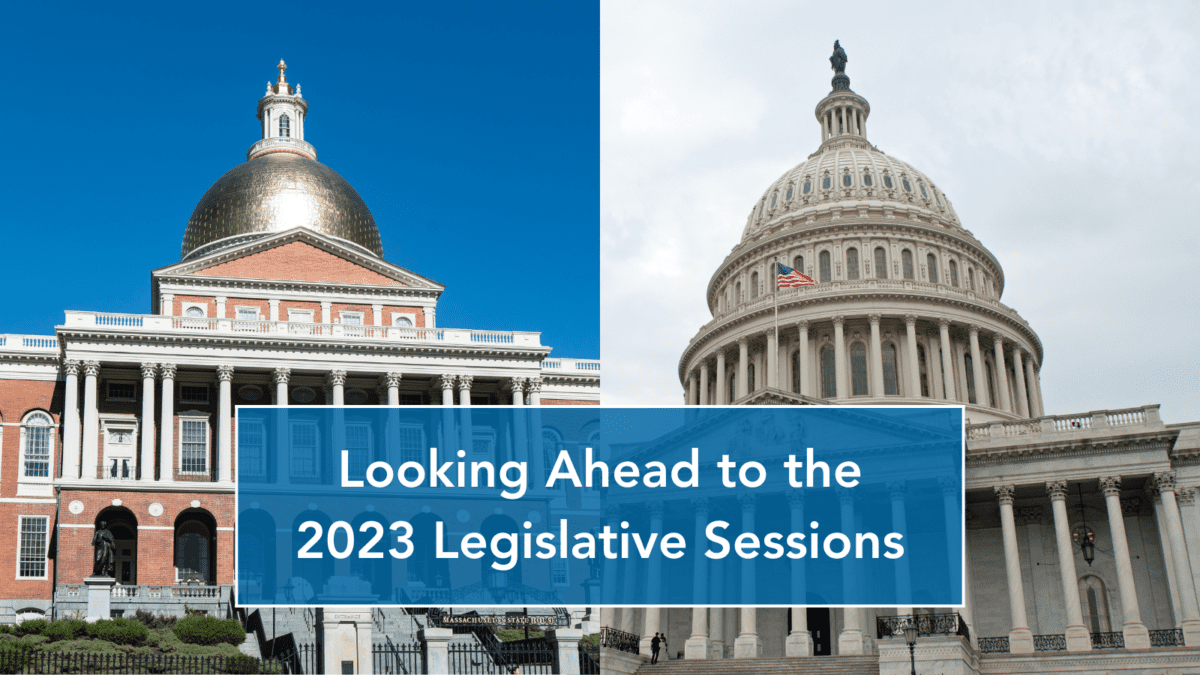
MassBio prides itself on being a leading voice for the life sciences industry in Congress and at the Massachusetts State House. Nearly 40 years ago it was six biotech companies that decided to form MassBio in large part so they could collectively educate and lobby the Cambridge City Council about proposed regulations allowing for biotech companies to operate within city limits. Since then, our membership has grown to over 1,600 and the scope of our advocacy work has expanded to include the issues our members care most about, especially around drug pricing and patient access and affordability. When you are the voice of an evolving industry employing over 106,000 people in Cambridge, Boston, and around the state, your advocacy work must be inclusive, thoughtful, and timely.
As we transition from election season to new legislative sessions on Beacon Hill and Capitol Hill, MassBio’s policy platform will be expanding to match the needs of our membership, of our industry, and of its employees. We cannot presume Massachusetts will continue to be the best place in the world for the life sciences. We must act.
Some of our expanded policy priorities are detailed below as we are just eight short weeks from the gaveling in of the new sessions.
State
Reauthorization of the Life Sciences Initiative (LSI)
Gov. Baker signed a second authorization of the LSI in 2018 for an additional $623 million. Though set to expire in June 2023, a recently passed economic development package has extended the state’s ability to spend capital dollars from LSI 2.0 for an additional two years. MassBio will use this longer runway to educate the incoming Healey administration and legislative leadership about the need to reauthorize the Life Sciences Initiative for a third time during the 2023-2024 session in order to sustain and protect Massachusetts’ leadership for this industry.
Education
MassBio is proud to be a member of the Student Pathway to Success coalition that’s been newly formed to provide a diverse voice in the State House about the educational policy choices and funding necessary to properly prepare all of the state’s students to succeed in the workforce. This coalition plans to focus its efforts, among other things, on legislative solutions to expanding access to early college programs, career technical education, and work-based learning. With estimates of tens of thousands of new employees needed to support the growth of our sector in the coming years, we know that our industry must do more to support a next-generation education system that focuses on equity and opportunity.
Federal
Implementation of the Inflation Reduction Act
The prescription drug pricing reforms contained in the Inflation Reduction Act were the most far reaching passed in Congress in a long time, especially the change allowing Medicare to negotiate drug prices. Though initial estimates are that these policies will reduce revenue to biopharmaceutical companies by $300 billion, the true impact is still unknown. Part of that uncertainty is due to an unusual policy choice in the law that allows Medicare to negotiate the price of small molecule drugs nine years after being on the market but that they must wait 13 years to negotiate the price of a large molecule drug. This oddity is very likely to negatively shift market incentives creating outcomes we can’t yet measure. This is a misguided and harmful policy and MassBio will be advocating to level the playing field.
Impact of Out-Of-Pocket Costs on Patient Access
One good piece of the IRA was capping Medicare patients’ out-of-pocket prescription drug costs at $2,000 per year. This will save seniors thousands of dollars a year and ensure they can afford the drugs they need to get and stay healthy. The problem is Congress did not do enough to alleviate cost concerns. Moving forward, MassBio will be busy educating legislators about the role of PBMs in the drug pricing system and how their actions can negatively impact patient access. Along with insurers, PBMs collect billions of dollars in rebates, discounts, and fees from biopharmaceutical companies. Right now there is a lack of transparency about where that money goes. If nothing else, that money should be used to directly reduce the cost of medicines for patients at the pharmacy counter.